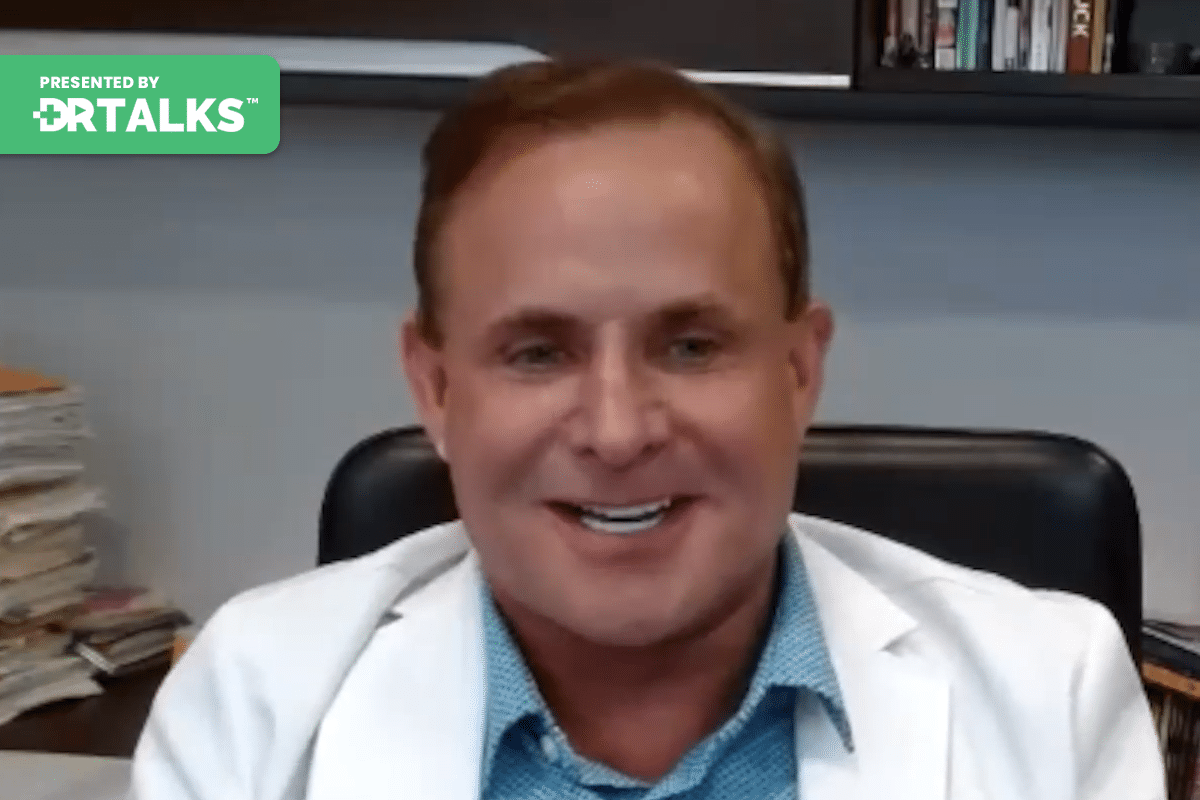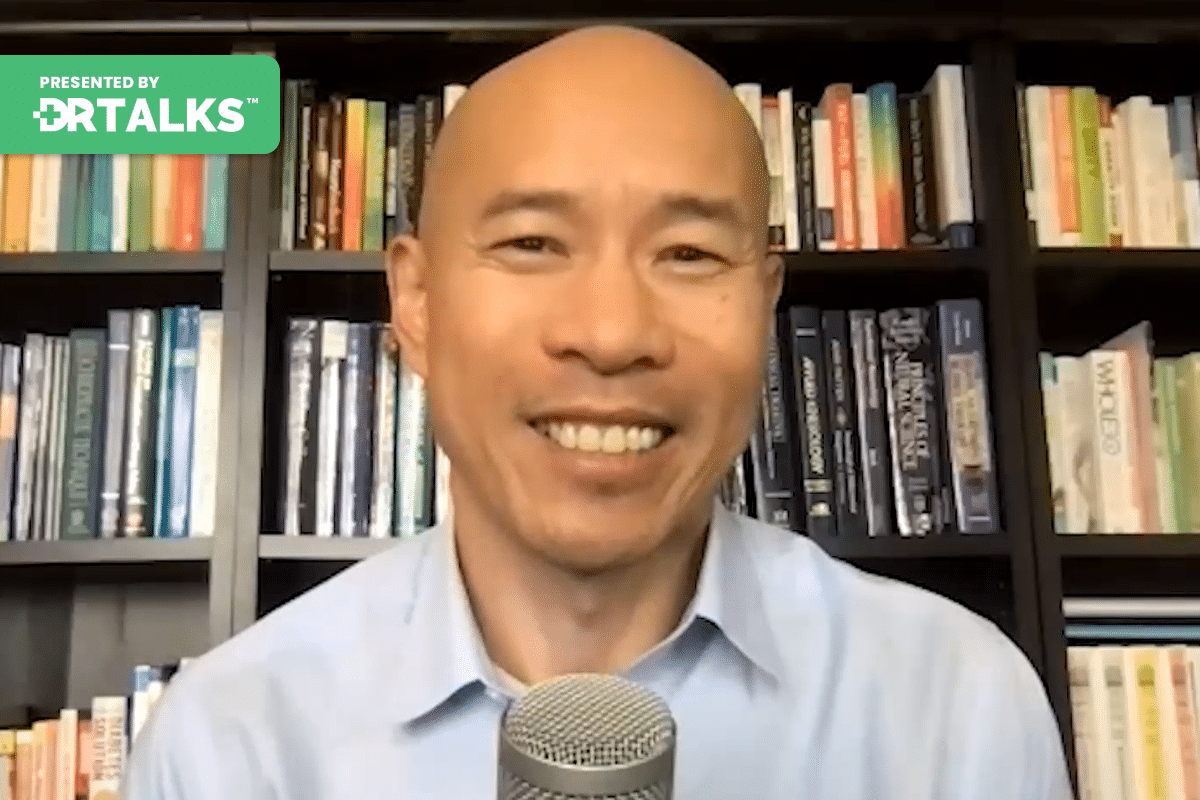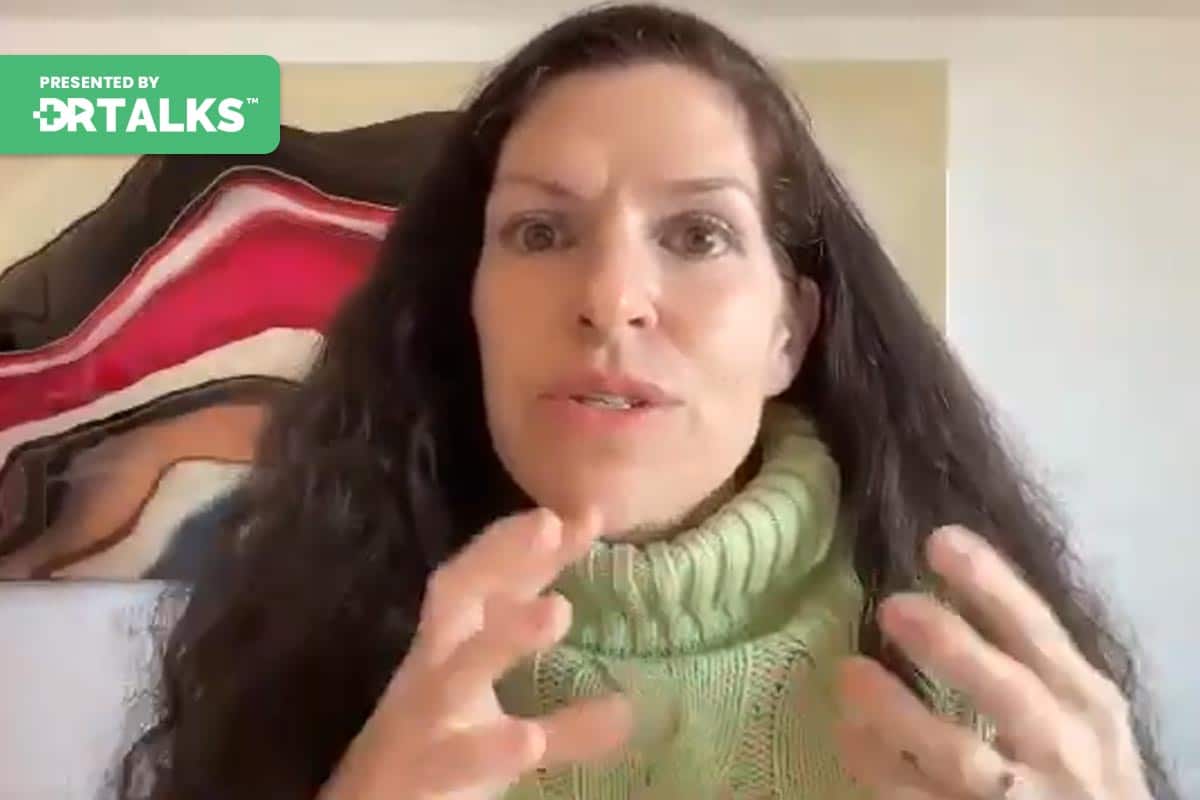Join the discussion below
- How Chronic Lyme Disease leads to rapid aging of the immune system
- Learn why you don’t make an IgG response and so many people tell you your IgM is a “false” positive
- Why Natural Killer (NK) function is critical in recovery from chronic infections and how to improve it
- What are the best peptides for addressing chronic infections?
Thomas Moorcroft, DO
As Dr. Tom here. And welcome back to the Healing from Lyme Disease Summit. And I’m really pumped for today’s conversation. My interview with Dr. Kent Holtorf. As you know, I really love to, you know, bring on people who are leaders in the field. Dr. Holtorf is the medical director of the Holtorf Medical Group, and he’s his bio is so long and so many accolades. One of the things that really made me want to bring him here today is that he is the founder of Integrative Peptides, which actually helps to bring evidence based peptides to patients with chronic illness, chronic Lyme and in an oral form or not have the inject ourselves all the time and also can share a lot of knowledge about what injectables may be helpful. But even maybe more important that when Kent and I first met, we started a conversation and I think the first thing he said is, other than,
Hey, Tom, how are you? Is what’s your best Lyme protocol? And then we had this great conversation, and what really happened was like, I realized in the first moment that we met that he was always digging deeper. He was always saying, like, we’re here, we need to go further. And the reason we need to go further is because people are still suffering. And when I meet people like that, I want to have more conversations with them because like, I felt like at the time, I’m like a newer kid on the block and he had done a bunch, but I’m like, I looked up and I saw Kent as like someone who’s been here and a leader in the field for so long. So humble, wanting to find out how he can help you and all of his patients better. So. Dr. Kent Holtorf, thanks for joining us and thanks for being such an inspiration to me and so many people in the field.
Kent Holtorf, MD
Oh, God, thank you for the. Oh, thank you. Very nice you for the kind words. But no, I came up to you. I was nervous. I don’t get nervous around doctors and but dude, man, you are the biggest brain in the room all the time, wherever you go. So I was like, I talked to the doctor, you know, celebrity. So yeah, it’s I just love your work and you’re always your webinars and your lectures are just so you’re tenfold above everyone else. So I am very appreciative and grateful and humbled by being here. So thank you so much for having me. Yeah.
Thomas Moorcroft, DO
Well, it’s so interesting. It’s a funny place. We were starting off because I feel like so many of our patients are comparing themselves to other people when most of us are all going through the same thing. Like I’m like, oh my God, this whole tournament, I didn’t even think I’d ever get a chance to talk to this guy and then he’s asking me questions. But that’s what is so cool about what we do. The people in our small little neck of the woods, so to speak, in this field all just are in it because they love science. They love helping people heal. And that’s just like, to me, the most important.
Kent Holtorf, MD
For the money is a lot of easier ways to make money.
Thomas Moorcroft, DO
For real.
Kent Holtorf, MD
One, cancer doctors. Why do limes do cancer? It’s so much easier.
Thomas Moorcroft, DO
You know. And then you can have the infusion center and the this and of that. But so I’m excited because we’re going to be talking about sort of accelerated immune system aging, as is core dysfunction in chronic Lyme disease, in chronic chronic inflammatory response syndrome. I usually just say sirs, but try to always remember what it actually means.
Kent Holtorf, MD
I just almost finished an e-book, but I can never finish anything and I keep adding, but I’ll shoot it over to you. And it’s the what is it, the peptide protocol for the rapid treatment of tears. And so the standard treatment is let’s get rid of the toxins to help the immune system. Right. And but that’s that word. Treat the immune system and you can detoxify so much quicker and get patients from A to B instead of I had so many pages come in on binders or binders are good, but it’s like been on for four years and like, I know I’m getting better. Shoemaker does it and it’s been four years. I think we can cut bad happen you know and get from A to B in months rather than years.
Thomas Moorcroft, DO
Yeah, I think it’s critical. And as an osteopathic physician, I got into that profession because they said this crazy thing support the self healing mechanism. So essentially find the issue, fix it and get out of the way and let the body do the work, find it, fix it, leave it alone and that’s what I love about the stuff that you talk about. So when we want to fix, when we want to help people recover more rapidly, you know, from Lyme, from mold exposure and chronic and, and bio toxin illness, cancer, chronic illness in general, because there’s so much overlap. The pandemic recently has shown us wow like a lot of these crazy chronic Lyme docs actually know how to treat people with chronic immune dysregulation and dysfunction so that none. I’m really over there and I am talking about chronic COVID. They’re talking about immune dysfunction from it and from retain spike protein. So the question really is, where do we start to understand how a particular let’s focus online, but certainly go wherever you want to go because that’s what you’re here for, because you are the you’re you know what’s going on in this field. So but what’s the scoop with Lyme disease? Why are we getting it so easily? And how does it screw up the immune system? So and then how do we start to create a protocol that actually moves the needle forward rather than just doing the same thing with a different name for four or five years?
Kent Holtorf, MD
Yeah, and that’s true. I know these syndromes like chronic fatigue syndrome or myalgia, like fibromyalgia, if you press on 1118 tender points, all your positive signs, signs, and there’s no nothing special about the center points. It’s like you want to ask. Someone has fibromyalgia. It’s like you have muscle pain and sleep disorder and positive everything. Okay. I imagine if you were like, Well then how do you know that they get better? As you know, and chronic fatigue syndrome is based on, you know, symptoms and, you know, their age and can’t sleep and and but the problem with these is that it gave the permission for doctors to basically do nothing. So I go to the chronic fatigue syndrome diagnostic anti-depressant like did they ever look at the underlying Cosmo, you know, and, and you look at, for instance, you know, studies with fibromyalgia and chronic fatigue syndrome showed that basically 35% will have low natural killer cell number, but 75 to 80% of low natural killer cells function.
And that’s why you so if you look at the immune system to break it down, it’s everything’s an oversimplification what the immune system is you have to because it’s just so many different areas. But there’s one and Tregs generally on this side and on this side there’s you take 17 which is basically the th1 gets up inside the cell cage just outside the cell, but the T 17 very much causes an immediate E then on this side of T regs will come down from overreacting to things. Now, one thing is interesting. You look at all the textbooks and still journals will talk about this that like Hashimoto’s is ath1 disorder, two high of t, each one in graves is th2. Like with all of these things like that, like lupus, all these things like, well, why do they respond to the same treatment, you know? And it doesn’t make sense. And so what they found is that the t 17 they couldn’t differentiate from th1, but they’re on two different sides. So and there’s like people saying, oh geez, one if you look at cytokines, but no, because the problem is we find is that the body’s trying to boost something. Let’s say it’s trying to boost the th1, but it’s not responding. So those will go really high and say, oh, it’s ath1 you know, oh you know they c high disorder. No it’s low, but the body’s trying to increase it so it matters what you’re testing. Right. And, and so what we found, it’s not really a change one marker, but the downstream effects of th1 we found the best correlation is with natural killer cell function in general like quest is that I hate Quest but they got the best deaths in the especially desk and then and with the th2 and will increase our immunity inflammation. And if you look at or come back to find this so a famous is in your breastbone it starts imploding right around age nine, ten, 11, and it keeps imploding, basically shrinking and shrinking by about age 40, 45. It’s at its lowest point.
And that’s when we start getting all these diseases of aging, autoimmune disease, cancer, diabetes, you know, osteoporosis, all these things. And if you look, you know, all of these things are associated with a dysfunctional immune system. Most one, I teach two. And then there was like the Treme trial. What they gave was metformin growth hormone and DHEA, and it showed rejuvenated the fineness and people got much better. And it was like an anti-aging thing. So all these things we’re talking about, Lyme also holds for this whole anti-aging movement, which I think is awesome because we can lower your biologic age, but it all goes. So you think of Lyme as really a rapid aging of the immune system and mitochondria and the pineal Islamic pituitary hormone axis, you know, immune activation and coagulation and all these things are like, there we go and it all fits together. And so we started looking at the immune system that the nice thing is it’s the commonality among all these things. We have an immune disease, chronic Lyme and we’ll talk about chronic Lyme, how it directly causes that and all these inflammatory diseases cancer they all have the same this immune dysfunction. And so people are doing stuff like, again, this like term trial to rejuvenate and find this. But why don’t we just give finding peptides? It’s like if you’re low testosterone, give testosterone for low estrogen, you’re low in peptides. It’s funny, sometimes.
Thomas Moorcroft, DO
It makes a ton of sense. And I really like the concept that this sort of rapid aging of the immune system triggered by one of these, you know, infections, toxic exposure to specifically Lyme because people I always joke like, you know, a lot of times kids will respond in a different way than adults. And sometimes they can heal really quickly. But it’s like they’re like a new car, you know, and like I’m a used jalopy type of thing, you know? And it’s like, I just think about it. I’m like, But why are all these people who are like 15, 30, you know, 40, like looking like they’re responding, like they’re, you know, like double their chronological age. So what’s next? So when we have this, so with Lyme, we start to have this immune dysfunction triggered, right? Is what you’re saying.
Kent Holtorf, MD
And then I’m sorry, I mean, but yeah, I think most people who had chronic Lyme didn’t even know right. If suppress it we have so many infections that you think like, oh, you got this or this or people come up with like, you know, ten in positive for infections. You think you got ten different infections. Now everyone has those that your immune system just suppresses it. And but as we’re in this, you know, modern age with toxins, pesticides, plastics, stress is a huge thing. And so we find that toxins and stress and then you’re going to be much more prone to a chronic infection that you would otherwise just totally suppress. And then alignment self. Well, it will basically, you know, the tick saliva will suppress your teenage one and then the Lyme will actually also directly suppress one. Then it goes inside the cell now because one’s low and now you’ve got chronic Lyme and it continues suppress that teach one increased teach two which also goes with thymus, evolution, aging, you know, chronic illness and everything is a vicious cycle. So you get this immune dysfunction which then causes, again, pineal either by pituitary hormone dysfunction, mitochondrial dysfunction, activation of coagulation and leaky gut. And, you know, all these things are just everything’s a vicious cycle in a good way or a bad way.
Thomas Moorcroft, DO
Right. And I mean, I think before we hit the record button, we were talking about finding that root cause. And it’s like I think a lot of times we’re saying, hey, the infections, the root causes are the mold exposure or the heavy metal is what you’re saying is like go back further and it’s almost like what’s the what’s what’s the part of the body that’s actually busted or not working well? So it’s like the linemen broke something. The mold never broke something. It may or may not still be causing the problems. You’re really saying like, yeah, step back and see what immune this regulation has been triggered because that’s the thing that should be clearing it.
Kent Holtorf, MD
And that we find is all this vicious cycle with so many different components and also your brain and all the all these things is that once this vicious cycle starts now, we say, well, what’s the cause? You know, well, okay, we’re drill, baby line, but also stress and toxins. And then now you get all suddenly you get reactivating infections because you’re page one so low and that causes more immune dysfunction. Mitochondria associated causes, you know, how to find pituitary. I mean, basically that gets lower. So that causes more dysfunction and you get immune activation coagulation. Now hormones and medications and you know, other things can’t get in the cell and waste can’t get out. And so it’s like, well, what’s the cause now? It’s now it’s 20 things. So you got to we found that if you fix the immune system, you’re going to fix a lot of those things without having a treat everything. And a lot of times you have to do certain treatment, like I’d say, still cognitive dysfunction. And we’re getting terrible license repair and also but if we fix the immune system, a lot of these things just get better. Like the autoimmune disease goes away. Like how big is that?
You know, you look at I think all these Lyme patients generally have really patterns. And, you know, I just did a three hour business, be it 30 minute visit was 3 hours with a new Lyme patient. Just know she’s lying but she’s going to be. But yeah and it’s it. She had so many different, you know, basically systems that were totally just screwed up and she could not function at all. And she went use that. I went to the VA and they’re like, Oh no, we’re going to have this. It’s all psychological, you know? And and so I’m like, No, we did it with a bunch of labs. And she cannot believe, like, because, like, oh, what would be abnormal? Like, how many things are abnormal? And she said, Oh, the doctor said, I’m fine. Look as if you do a CBC again panel and a cholesterol, you’re going to be fine. And DSH yeah they’re DSH is not high. It’s low, but they’re low thyroid. But the endocrinologist learn, you know, basically to just high as far as low GS lower they’re trying. No that’s wrong. You know and I did wrote a couple review articles there, a number of them on that whole premise. The way we diagnose and treat thyroid dysfunction in this country is wrong.
Thomas Moorcroft, DO
But there’s so much dogma about it. And like I kind of understand some of the background, I hesitate to say political or financial or anything like that, but that may have come to mind. But, you know, we get down to it. It’s almost like we get so far down one path that we just can’t say, wait, I’m going to go back here and switch over to what can’t just the same, you know, and it’s an interesting thing and I think that what we’re seeing with Lyme, we’re seeing with the pandemic, we’re seeing with all these other things. And by way, way, way before people recognize Lyme that the thyroid piece is we need to be, oh, this is the part like when I, when we first met I was like can it is into learning and he’s okay if what he previously thought is now shown to be different. You know, I recently saw a comedian who my daughter and my wife and I watch once in a while because it’s like almost family friendly. And so now these days, you know, 11 through 13 is kind of like almost like when we were 25 and, you know, but yeah. And he said like, look, like there’s stuff going on ten years that I said ten years ago that people want me to apologize for now he’s like, I’m not going to apologize for what I said ten years ago because back then it was okay. But what I’m not going to do is today I’m going to recognize that that’s not okay anymore. And I’m going to do the other thing.
Kent Holtorf, MD
A lot of like, yeah, people are crucifying people’s oh well thing, you know, I want to get the word. But yeah, it’s like, okay, I was wrong. And I told also patients that they have a doctor. It says, I don’t know, stick with a doctor, you know, instead of bullshitting. And not that, you know. Wilson you probably see this if you have a patient that’s been seeing a doctor for ten years, you send them back better. You think the doctor is happy?
Thomas Moorcroft, DO
None of them.
Kent Holtorf, MD
It’s they tell the patient, you’re no longer a patient. You’re you know, basically, if you keep seeing that crazy doctor, I won’t no longer see you, you know? And I just. What a little story that we had this patient and she was family that owns all the movie theaters around but she had this doctor she thought was her best friend and she got hurdle cell cancer. Right. The thyroid and the doctor’s like, you’ve got to get this out this week. And so she called me and I said, wait a minute here. I’ll send you some studies. This is inflammatory cancer. You know, I think we can reverse it. And so I gave her all the studies and said, you know, I’m not going to make it remain for you. But she told her doctor and her best friend, she thought that, okay, she’s not going to do the the treatment. She’s going to try it for six months. He’s like got a death wish. And, you know, and no, she’s a very logical person. And six months later, we do the scan. It’s gone. All right. So she goes back, she’s so happy, and she’s going to bring it back to her friend, her doctor, and think he’s going to be happier like that. I don’t know. We’ll see if he’s happy. That’s that’s different than most. And but she goes back and she reported back that he wouldn’t come out of his office and is told the front desk for say she’s no longer a patient.
Thomas Moorcroft, DO
Wow. Now it’s crazy. And I, I mean, I think that that’s part of why we do summits like this, is to get that information out to people so that they can make their own decision and to also introduce people to other doctors who are challenging the mainstream, not because we want to challenge it, you know, and not because we don’t believe in the stuff that works. It’s we see the things that don’t work and we want to find those new things.
Kent Holtorf, MD
It’s so common. Or are you pricing this now? I mean, medicine has deteriorated standard medicine and like I was a very evidence based. I’m still a very basic physician, but it was ingrained to me that, oh my God, never go anything alternative, integrative. It means, no, it’s not evidence based. And that was ingrained to me, you know, and then I but I got sick and I went to these all these, you know, chief of staff and nurse, and they couldn’t help me at all. So I snuck after some of these integrative alternative where you want to call it, and I’m like, Holy crap, this is more evidence based than what the perhaps the teach me in residency, right? And I look at.
Thomas Moorcroft, DO
Lyme disease, man. I mean, what how are we treating people? We’re using the best evidence we have or applying it to the unique individual in front of us. And when there’s more evidence for the chronicity of Lyme disease and for the effective treatment of Lyme, the herbs that we know about, the meds, the everything, you know, it was interesting to I just want to wrap back to a quick point that you made earlier, because I want to remember to share it is when you were saying like it’s like all the adults have pens and obviously pansies is a pediatric condition triggered by Lyme and other toxins and infections and whatever. But so and I don’t really feel like saying ads all day for adult acute onset neuropsychiatric syndrome, but essentially, like it all really does boil it revolutionized the way that I treated patients when I realized that my adults had the same autoimmune issues. So it wasn’t just the lupus and the rheumatoid people who had the autoimmune trigger. Yeah. So much of the executive dysfunction, so much of the, you know, the cognitive stuff, the emotional piece and even the physical stuff is very similar to what we see in the autoimmune encephalitis triggered by infections in kids. So one of the things I think that is really unique about the way you talk about things is like the use of immune modulators that are really natural, not like immune suppressors, but modulators such as peptides that really can kind of get down to that core abnormality in, in sort of the immune dysregulation. So that’s as much as I want to talk about the state of medicine for the rest of the night.
Kent Holtorf, MD
Because yeah, we get to.
Thomas Moorcroft, DO
We like Target because we’re on a mission. But this is guys, this is like what you see when you get to doctors together who are so passionate about finding out the truth and challenging what we believe is the truth, but also what everyone else has told us the truth is so that we can find out what essentially what the next best truth is. Because we didn’t we have no articles on how to treat BBC Duncan prior to like three years ago. For years, literally, we just knew one paper told us how it didn’t work. So yeah, this is what’s so critical. So anyway, now here I am, you know, tangent and again, but immune modulation and peptides because this is really like a critical piece of healing from chronic Lyme and any other chronic stuff.
Kent Holtorf, MD
Yeah. And or even look at, you know, I’m not going to get into vaccines, but the way you, you know, study it are offers we check natural killer cell function and people vaccinated every time they get vaccinated lowers, lowers, lowers. Now they’re showing that the more times you’re vaccinated, the more likely you’re going to get COVID, you know? But yeah. And so it’s all this dogma very financially about the role of don’t try to avoid that, but it’s hard but let’s see where we yeah with Lyme and we find the fundamental commonality of all of these conditions really is is immune dysfunction and like we don’t even think twice about pot patients because you fix the immune system that goes away. Muscle activation dramatically reduced in like, you know, CPT and normal people say, well, even like, you know, all pathologists and doctors and internists, they think like immune systems on or off. No. And so like biologics will lower cortisone, you know, cortisol will lower the immune system. Both sides, we want to do not do that. We want to modulate you, want to lower that, take two and raise that to one, which really right there anti aged you probably ten years you know.
Thomas Moorcroft, DO
It’s amazing stuff when you can think about just rebalancing and modulating I mean I think I use the word immune modulation like every day, like 100.
Kent Holtorf, MD
Now it’s like people are like, oh my God, he’s doing that again.
Thomas Moorcroft, DO
Well, yeah, it’s like it’s that balance being and it’s also like the bringing the roof down and but not too much and not lifting, you know, because I think a lot of what I was taught in modern medicine, like just conventional medicine, is we suppress the immune system or are we jacket way up? Yeah, like what about just put it in its own sweet spot.
Kent Holtorf, MD
Yeah. So again, it’s not on or off. It’s like you want to modulate or you lowering this or this or both, you know, and that’s where, you know, all these blind people get increased cancer, increased infections. And because you’re lowering bone in like, for instance. KP Which lowers the mast cell inflammation, lowers teach two and it improves your mood and it’s shown it’s also very antimicrobial, but you get an improved response to, you know, all these infections and with low th1, you can’t convert IgG antibodies, IgG. So we’ll find like, you know, we get these patients that have IG m positive and the infectious disease says, well, no, you’ve had this in for ten years. This is a false positive. No watch when you monitor your immune system, an increase of th1. Now they convert idm which is an antibody that’s kind of just folds on and just like a dog on your leg, you know, whatever in your genes and but IGG activates complement or basically explode that organism. And like for instance, if I had a 41 cured arm band on AGM, that was it. When I started that I moderated by me in system and also little antibiotics. And all of a sudden they got, you know, they did have zero bands and IgG, I got seven bands and igg0.
Thomas Moorcroft, DO
I had like every band positive, positive on exam eight years later.
Kent Holtorf, MD
Oh really after your better.
Thomas Moorcroft, DO
No, no, no, no, no, no. I got ten days of treatment. I was very sick so I got acute Lyme. I got ten days of doxy and they missed the babesia that they also found eight years later. And I think I.
Kent Holtorf, MD
Had it all this time. Hmm. Where are you? Sick all this time?
Thomas Moorcroft, DO
Oh, yeah. I was sick for, like, 15 years, but the good news is I’ve been well for 12 without a symptom. So I can tell you, you definitely when you modulate your immune system properly and you kill the stuff and then you work on the mindset like you had talked about earlier, you can definitely get better, but it’s brutal, right? And it’s like, but I had like this Christmas tree exam and then the IG, I think had four or five. I’d have to go back and pull the I don’t usually go back and look at my old stories because I let go of them. But, but it’s interesting to think like because like, so Lyme comes in. Yeah. I just want to make sure that I understood which one comes in. And as it infects you, it suppresses th1. th1 is essentially part of the thing responsible for helping AGM go to IG and have the proper full healing and clearing response and then also get allows you to have the blessing that says I d now says that you have Lyme because you have an IG and became an IG even though it showed that that doesn’t almost ever have.
Kent Holtorf, MD
I don’t believe in chronic Lyme. All right it’s crazy because thousands of studies you know.
Thomas Moorcroft, DO
Right. I agree that’s interesting. So it’s like what we need to do is in order to even finish the infective process almost is what I’m hearing is like for your body’s immune system to go through the complete course and like turn it on and turn it off. You need to have this one balance here that Lyme automatically suppresses. So what are the.
Kent Holtorf, MD
Thing or just quick? So I had three and a half years of highest dose I.V. antibiotics, like seven at a time at three, four or five times the dose. I would never give to a patient, but I had to get better. Didn’t get any better with three and a half years of doing that every day, you know. And I remember I was in I went in with sepsis all the time and I ran the nurse outside the ship chain. She’s like, Oh, this is that HIV, the AIDS patient that keeps turning up negative for HIV. I she was this, you know, and so no I had my natural killer cell function was zero. Like no wonder I couldn’t clear anything. So antibiotics will literally lower the infection. Then your body’s going to take over. But if your body can’t take over, you can’t lower it enough.
Thomas Moorcroft, DO
Right? Yeah. So what? So what do we do? Like, what are some of the core peptides?
Kent Holtorf, MD
Oh, we got to go. Yeah.
Thomas Moorcroft, DO
That we were going to tell you all about what peptides you should use. But tonight we can.
Kent Holtorf, MD
Stay tuned.
Thomas Moorcroft, DO
To stay tuned. Yes.












